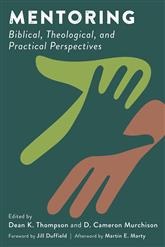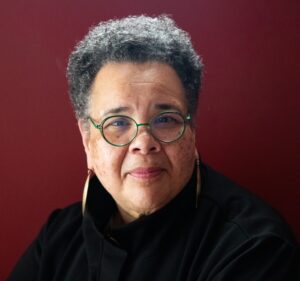mentoring
Select an item by clicking its checkbox
An audio version of this blog post may be found here. It was the first morning of my vacation. The restaurant at the resort had a waiting list for breakfast patrons. The hostess took my phone number and said I would be called when a table opened. I thanked her ...
(An audio version of this blog may be accessed here.) The rank of senior scholar is the highest and most revered. The hierarchy of the academy creates senior scholars by assigning newly minted faculty with the status of junior scholar, then over several years through a process of review, tenure ...
For Kenneth Ngwa, Drew Theological Seminary, teaching is not just a vocation but it’s a way of life. He confesses, “I cannot but teach.” Teaching is about a community of learners coming together to make meaning from a set of texts or artifacts. “I think teaching is a powerful tool, ” continues Ngwa, “to shape not just individual perspectives but how society functions.” He teaches classes in the Hebrew Bible and is an important voice in the field of African Biblical Hermeneutics.
The “I” That Teaches - A new video project that invites senior scholars to talk about their teaching lives. These scholar-teachers candidly discuss how religious, educational, and family backgrounds inform their vocational commitments and, also, characterize their teaching persona. From the vantage point of a practiced teaching philosophy we get an intimate account of the value and art of teaching well.
Click here to watch all episodes of "The "I" That Teaches" on YouTube
See Also:

Mentoring: Biblical, Theological, and Practical Perspectives
Date Reviewed: December 13, 2018
In Mentoring: Biblical, Theological, and Practical Perspectives, Thompson and Murchison provide a thoughtful collection of essays on Christian mentorship. As a whole, this collection contributes to the growing body of scholarly work on mentoring by offering “windows on mentoring that are biblically grounded, theologically informed, communally diverse, and generationally attentive” (3). The book is divided into four parts, with each of the fourteen chapters highlighting the twenty-one contributors’ unique analyses and insights on mentoring and being mentored.
Part 1 surveys biblical perspectives on mentoring. As such, it begins with Brueggemann’s consideration of mentoring practices present throughout the Old Testament and concludes with a posthumous essay by Bartlett on passages in the New Testament that help to shed light on contemporary understandings of the term “mentor.”
Part 2 examines the nature and task of mentoring from a variety of theological perspectives and methods. Drawing on the fields of pastoral ministry (Currie), homiletics (Long), ethics (Miles), and feminism (Rigby), the authors provide a range of mentoring models and resources that underscore the importance of positive mentoring relationships and practices in the formation of strong Christian leaders. On this Rebekah Miles writes, “Christian mentoring should include discussion of the ways that our professional goals contribute to the larger goals of Christian life” (83).
Part 3, “Diverse National and International Communities of Mentoring,” explores Christian mentoring practices as shaped by particular contexts, including race, gender, and ethnicity. Those who wish to think critically about dominant systems of oppression, such as racism, xenophobia, and sexism, and to foster concrete practices for inclusive mentoring within biblical-theological frameworks will find a wealth of resources in the essays by Pollard, Cannon, De La Rosa, and Kwok. Of particular note is Canon’s proposal that womanist mentoring is a vocational call, “to do the work your soul must have” (123). This section also includes an historical essay by Johnson on mentoring in the Roman Catholic tradition.
Finally, Part 4 contains three coauthored chapters that discuss mentoring as a mutually supportive practice that occurs across generations. Ottati and Hinson-Hasty’s essay, “Mentoring toward a Humane Disposition, Attitude, and Imagination,” describes mentoring relationships between the teachers and student, while Nishioka and Lowry and Wardlaw and Murray’s essays consider youth and cross-generational mentoring, respectively
The book closes with an afterword by Marty that skillfully and poetically weaves together the insights and value of this collection of essays. He writes, “It is impossible to speak properly about mentoring in entirely impersonal and theoretical terms. Mentoring is and is about a profound personal dimension of scholarly and pastoral work” (223).
Those working in theological schools or departments and in Christian ministry will find this collection of essays to be a valuable resource on the virtue and art of mentoring. The strength of this volume lies not only in its biblical and theological reflections on mentoring, but also in the range of everyday lived experiences and perspectives from which the authors write.
